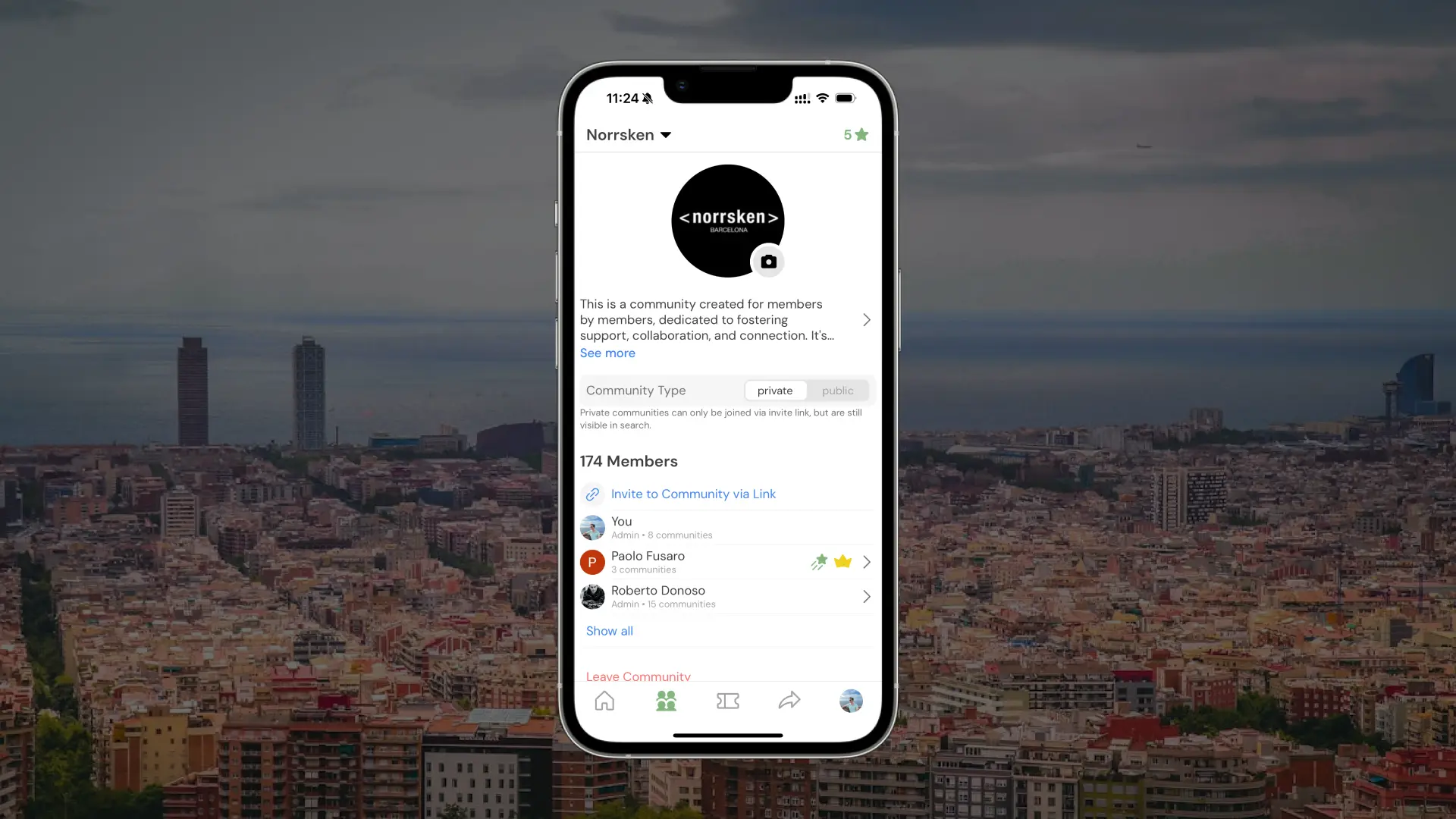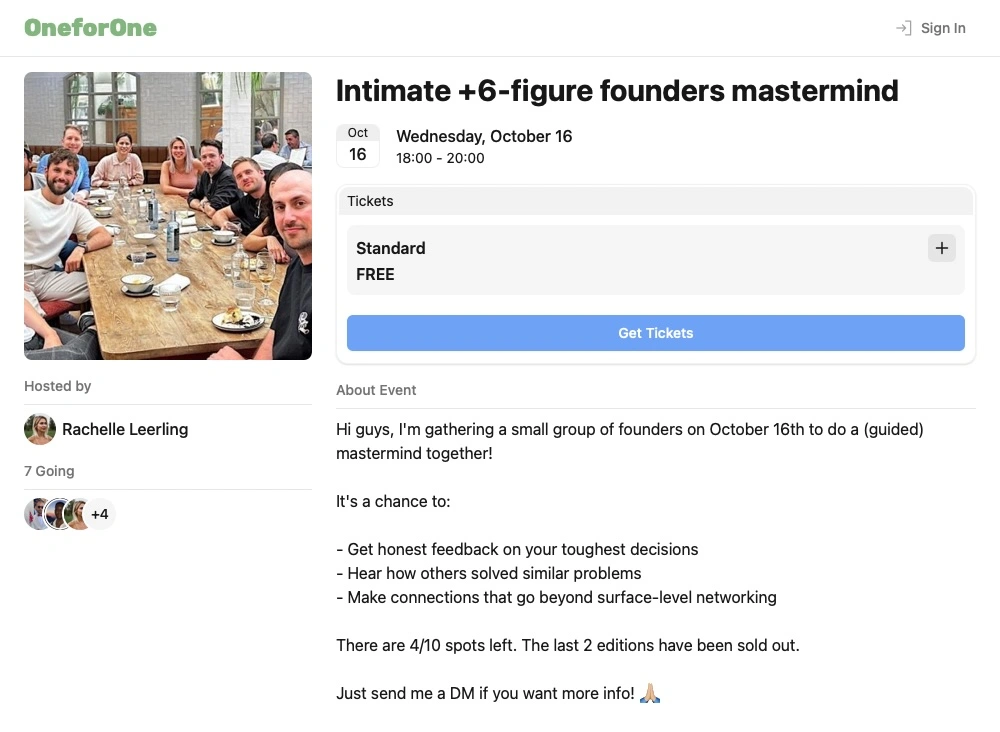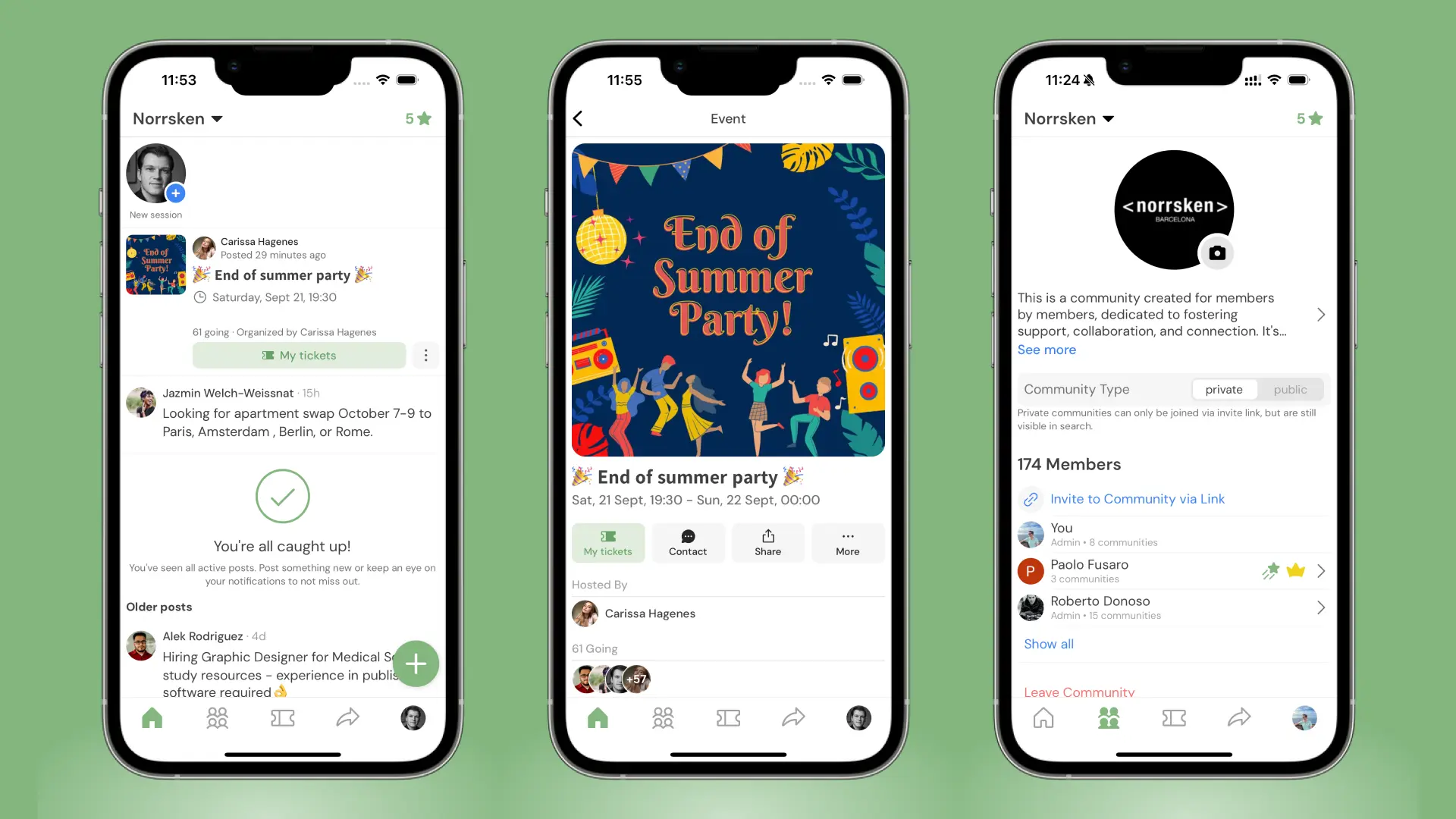
Oneforone - Building a Scalable Community App from the Ground Up
Introduction
At Phico, our approach is all about creating scalable, lean software solutions that quickly validate ideas, adapt to user needs, and grow organically with the business. Oneforone is a perfect example of how we helped a client bring a community-focused idea to life while keeping scalability at the forefront.
Project Overview
Oneforone is an app startup initiated by a private investor with a vision to foster closer connections within communities. The client approached Phico with the challenge of validating their idea on a limited budget while ensuring scalability in case the app took off. They wanted to launch an MVP (minimum viable product) within three months and continue to iterate until they found product-market fit. The project involved full design, frontend, and backend development for a community-driven app that could grow alongside user needs.
Understanding the Client's Needs
To kickstart the project, we conducted a series of brainstorming sessions to understand the client's vision and the core needs of the communities they wanted to serve. These sessions helped define user flows and create initial designs, which the client immediately approved. With the budget agreed upon, development began promptly, and we set out to create an MVP that was agile yet built on a foundation that could scale as needed.
The Phico Approach
The client had no specific technology requirements, other than wanting an extensible and future-proof solution—giving me the freedom to leverage the most efficient tech stack. We chose React Native to develop both iOS and Android apps simultaneously, reducing development time significantly. By incorporating Expo, we streamlined the process further with crucial features like OTA (Over-the-Air) updates, which meant users didn't need to download new versions for bug fixes.
For the backend, we used TypeScript with the AdonisJS framework, which facilitated fast API development. We deployed the backend on Google Cloud Run, ensuring easy scalability, continuous integration, and continuous deployment. The database was powered by MySQL on Google Cloud SQL, offering high availability, well-structured data handling, and the flexibility of database migrations — a process made seamless with AdonisJS.
This unique approach enabled rapid prototyping while ensuring that the initial product was ready to expand and scale as required, without the need for major reworks.
Launch and Iteration
Three months after our initial conversations, Oneforone was launched. The app gained traction within the client's communities in Barcelona, and soon, user feedback highlighted the need for features to make the app more community-centric, such as event organization functionality. We quickly drafted a user flow for this feature, received client approval, and delivered the update within a month.
The ability to organize events transformed the app's utility, attracting more users. Community leaders, impressed by the app, requested paid event ticketing functionality. To address this, we integrated Stripe, allowing for secure payment processing. Within an additional month of work, the ticketing feature was ready - making the app an attractive solution for other community leaders.
Scaling Further
As Oneforone grew, another challenge surfaced. Event organizers needed a way to sell tickets to people outside the app or those who were not community members. This prompted us to add several major features: a web-based ticketing solution, multiple ticket types, discount codes, and the ability to add co-hosts for events. This substantial upgrade took about two months and involved complex data migration and backward compatibility. The AdonisJS migrations ensured a mostly smooth transition, and Expo's OTA updates allowed for rapid bug fixes on older app versions.
 Oneforone Web Ticketing interface
Oneforone Web Ticketing interface
Results and Takeaways
Since the major update, Oneforone has continued to grow and is now seen as a potential new standard for community management. The client is very satisfied with the progress, and the app has proven to be not only scalable but also adaptable to evolving user needs.
For potential clients, Oneforone serves as an example of how software can evolve organically. We started with a core idea, stripped it to its essentials, and validated it quickly. Only after the initial success did we expand, adding features based on user feedback. This agile, lean approach allows businesses to test their concepts without excessive upfront investment and ensures that the product develops in line with what the market wants. This is how Phico builds solutions—always scalable, always adaptable, and always aligned with your vision.
 The Oneforone App
The Oneforone App
Conclusion
Working on Oneforone perfectly aligned with my working method — agile, lean, and focused on scalability. We look forward to continuing to expand upon this project and help more clients transform their ideas into impactful, scalable products.